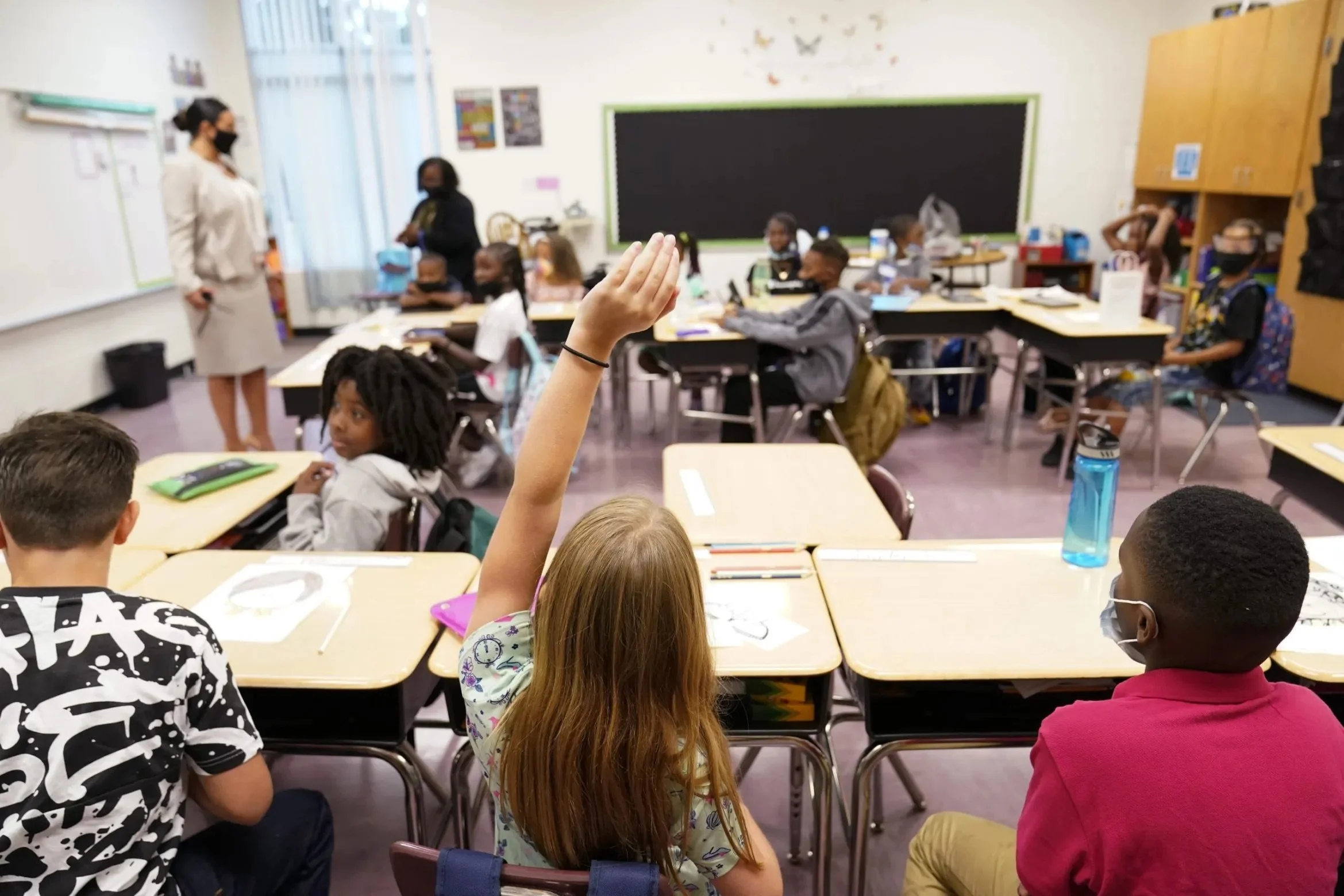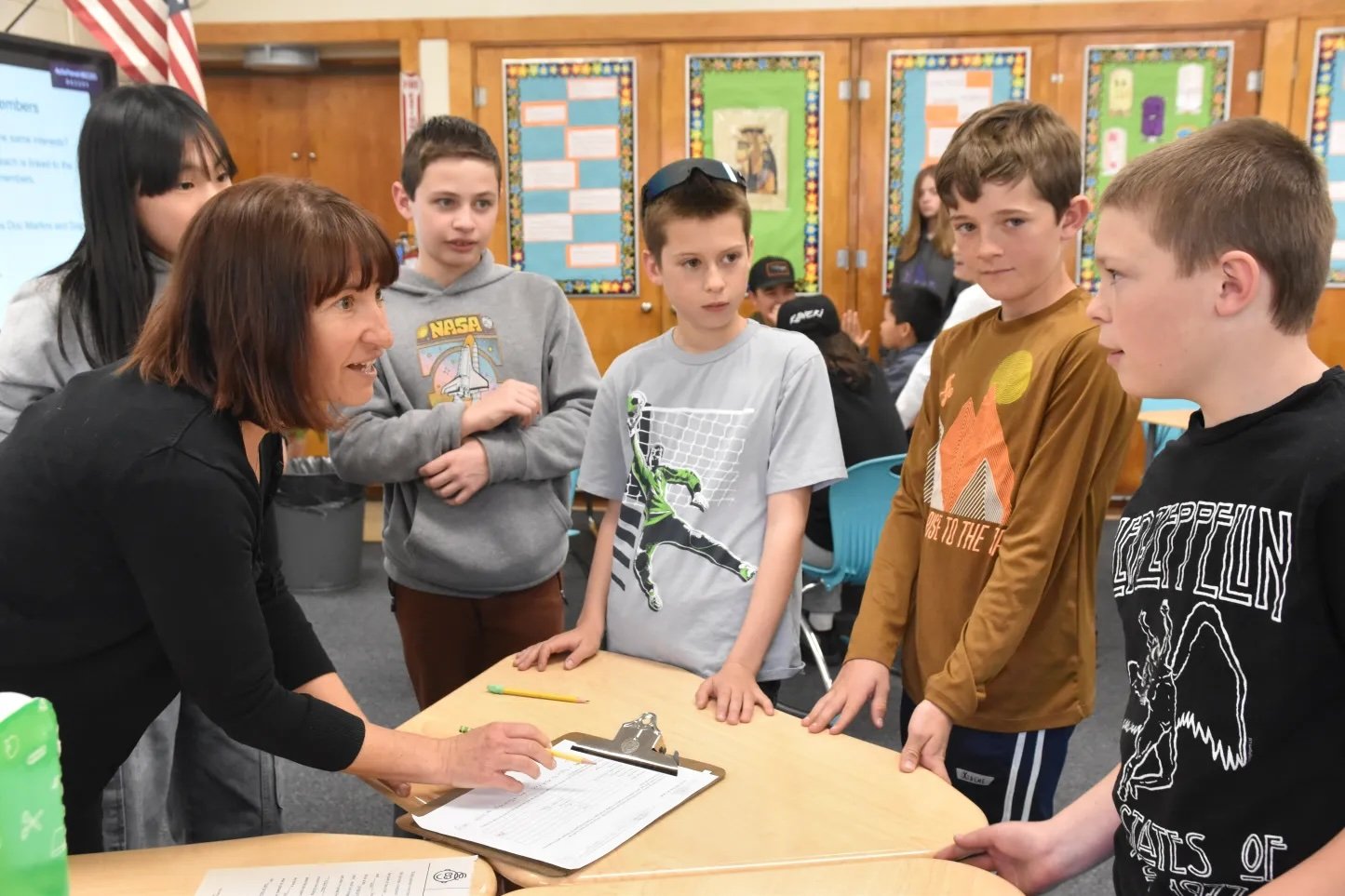The Daily Yonder reports on a collaborative project by Making Caring Common, the Center for Rural Strategies, and Generation Citizen focused on supporting teachers in leading productive classroom discussions about social issues.
Read MoreRead the latest from Making Caring Common!
You’re in the right place for our media coverage, blog posts, and event information. Our work spans a range of topics, all connected by our commitment to elevate caring and concern for the common good at school, at home, and in our communities. You can review what’s new below or use the dropdowns to sort by topic and category.
Be sure to join our email list and connect with us on Facebook, LinkedIn, and Instagram, to stay current with Making Caring Common’s news and updates. If you’re a member of the media, please visit our Media Room.
Sort by topic
- Access and Equity
- Bias
- Bridging
- Building Connection
- Bullying
- COVID
- CSN
- Caring and Empathy
- College Admission
- Consent
- K-12
- Mental Health
- Misogyny and Sexual Harassment
- Moral and Ethical Development
- Parenting
- Romantic Relationships
- School Culture and Climate
- School Integration
- Social-Emotional Learning
- State of Caring
- Turning the Tide
- Voter Mobilization and Civic Education
- Youth Advisory Board
Sort by category
Many fathers in the United States said they felt closer to their children—spending more time and better-quality time with them—during the coronavirus pandemic than they did before the pandemic began in early 2020. Now, as we approach Father’s Day a little more than a year after the World Health Organization declared the end of the pandemic, we wanted to take a moment to reflect on these relationships.
Read More“There are three essential components of lived purpose: a life vision, a community and opportunity,” writes Russ Ewell in Church Leaders in this piece about supporting Gen Z in developing a sense of meaning and purpose.
Read MoreNew Mexico’s Los Alamos Reporter checked in with Mountain Elementary’s sixth grade class about how they’re incorporating MCC resources in their classroom.
Read MoreInside Higher Ed took a look at key findings from our On Edge report that found young adults report twice the rates of anxiety and depression as teens.
Read MoreCaring for ourselves and our children is a stressful job. From the number of decisions we make each day, to navigating work, health, and schooling, a parent’s to-do-list is neverending. Even though experiencing stress isn’t enjoyable, it’s important to remember that everyone experiences stress. Exploring ways to better understand and manage your stress can strengthen your connection and relationship with your child.
Read MoreThe Chronicle of Higher Education’s Scott Carlson and Ned Laff make the case that meaning and purpose—not future employment—should be at the heart of the college experience.
Read MoreCollege isn’t the only path to success, and it’s important for the adults in teens’ lives—family members, teachers, coaches, and others—to acknowledge the value of diverse paths that don’t include four-year degree. Here are 20 questions to ask soon-to-be graduates that celebrate a wider range of options for life after high school.
Read MoreEvery year, Mother's Day prompts a flurry of Hallmark card purchases, brunch reservations, and frantic (maybe even last-minute?) searches for the perfect bouquet. Don't get me wrong—these gestures are lovely and appreciated. But for many moms, the gift they really want isn’t something that can be wrapped. It’s recognition of—and help with—the mostly unseen work that keeps the family ship afloat.
Read MoreThe emotions we experience influence the way we interact with the people we love. As adults, many of us haven’t had the time (or support) to explore our emotions or build healthy coping strategies. Due to busy schedules, dealing with grief, trying to support our family’s financial needs, and so many other challenges that we experience as parents, understanding and navigating our emotions can fall to the bottom of the to-do list.
Read MoreNational Public Radio’s Here & Now checked in with Rick Weissbourd about the importance of family mental health.
Read MorePlanning some spring cleaning? Include your kids! Chores can be about much more than just keeping a tidy house (although a clean space doesn’t hurt). When your kids pitch in, it can help them develop empathy, responsibility, self-efficacy, and confidence. Plus, it can strengthen your connection as a family.
Read More“The principle of the common good is the glue that bonds a pluralistic people—a diverse people marked by socioeconomic, religious, racial, ethnic, and other differences—into a political community,” writes Robert Ivie in Common Dreams.
Read MoreAsks Renee Graham in The Boston Globe: "Are you happier today than you were four years ago? A decade ago? If you live in America, the answer is probably no — especially for people under the age of 30."
Read MoreAs part of our relationship mapping and mental health initiatives, we’ve been focusing much more of our time on creating resources for educators and caregivers to help them support student mental health. We aim to Increase awareness around mental health for both teens and adult in addition to providing adults with actionable tips and strategies to support their teens, and themselves.
Read MoreTraditionally, colleges look for students with good grades and test scores, but this approach might not identify those who will flourish on campus. The Thrivers Study suggests a more holistic approach.
The Thrivers Study involves a team of staff and faculty from various departments like admissions, student life, and alumni engagement. Together, they define what it means to be a thriving student at their college and identify current students who exemplify this.
By interviewing and surveying these thriving students, the college can understand what factors attracted them and helped them succeed. This might be unique academic programs, strong support systems, or a vibrant campus life.
Read MoreHow can changes to college recommendation requirements help level the playing field in college admission? Brennan Barnard weighs in in Forbes.
Read MoreCollege admissions officers face pressure to build a diverse and interesting student body, especially with evolving application trends like grade inflation and test-optional policies. Focusing on non-academic traits can be helpful, but it requires clear communication. Clearer and more engaging supplemental essay prompts can promote a more equitable admissions process and help admission offices gather the information they need to admit students who will thrive in their unique campus environment.
Read MoreThe college admissions process often relies on vague terms like "grit" and "resiliency" to assess applicants' non-cognitive traits. This lack of clear definitions can lead to miscommunication and bias among admission officers. To address this issue, colleges should develop a shared understanding of the qualities they value and how to identify them in applications. This can be achieved by defining these traits clearly, anchoring them in research, and providing examples of how they might be demonstrated. By being more explicit about what they are looking for, colleges can create a fairer and more equitable admissions process for all applicants.
Read MoreAn initiative led by Making Caring Common and Common App aims to give credit to college applicants for demanding home and family commitments, similar to how traditional extracurricular activities are considered. Read more in the Hechinger Report.
Read More




















